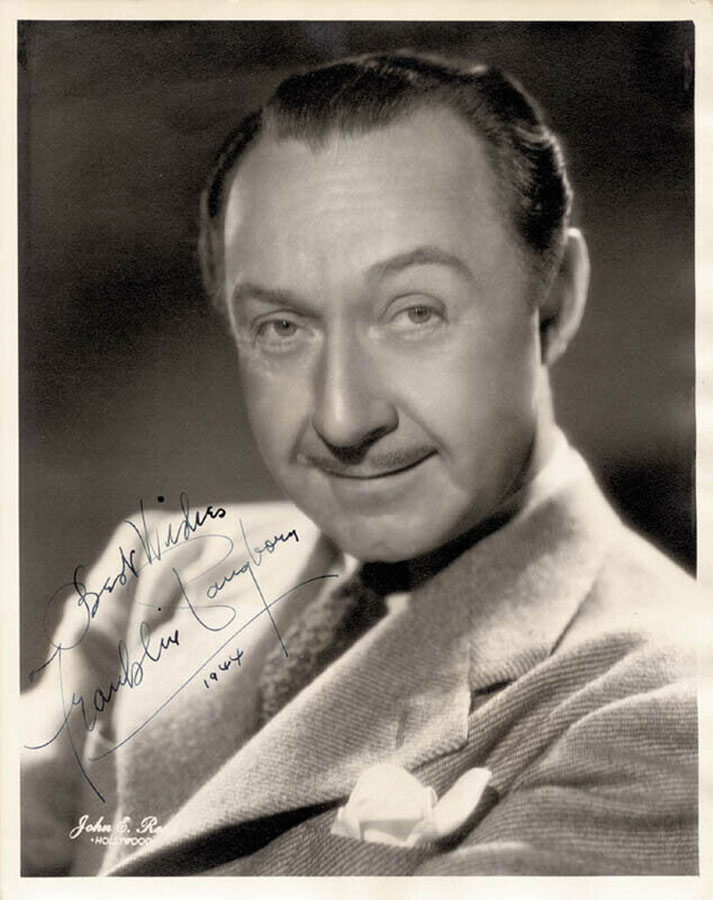
Back before it was hip for an actor to play the gay neighbor/coworker/comic relief role, Franklin Pangborn made a career of it. He didn’t necessarily get to say the punch line, but with his comic expressions and timing, he was able to make the most stale lines (and situations) seem funny. From a May 1939 article in the Boston Globe, he was described as:
Darling and Dandy Of Screen Colony
As raconteur and laugh-maker he’s unique. From flying coattails to raised eyebrow, he puts his all into telling a story—or a joke. And such is his comical personality, just to look at him is to laugh!…His earliest ambition was to “wring tears from people’s eyes,” but not from laughter. Born in Newark, N.J., Franklin started work for a life insurance company. But his hear wasn’t in it. “I always wanted to be an actor,” he told me. “A Shakespearean actor. I studied plays all the time, and I also studied music. Mother wanted me to be an organist.
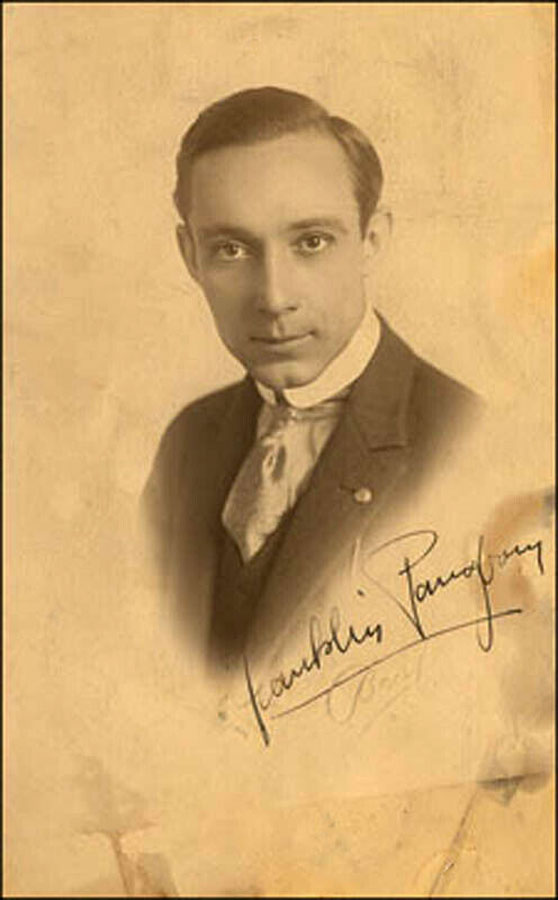
One day I met at a party in New York the stage star, Mildred Holland. I was 17. I can see myself now, sitting in a Japanese chair—the room was filled with gorgeous antiques—telling the actress all about my ambitions. ‘I want to do plays,’ I said, ‘Sad Plays…I do hope I can bring tears to people’s eyes.’ She didn’t laugh at me. Instead, she decided to give the kid a chance. She asked me if I wanted to spend my two weeks vacation as an extra boy in her company…at $12 a week. That was more than I was making in the insurance business and so when the company went on tour and she offered me the job of the boy in the company to run errands and speak a few lines, I jumped at the chance to learn the acting business.…I got a gorgeous part in a George M. Cohan musical. My very first exit, they laughed at me so hard that I—not thinking I was comical—felt awful. After the show that night, they said: ‘Franklin, from now on, you are going to play comedy.’”
He played supporting roles in three films with W.C. Fields and two with Shirley. His first with Fields was in the pre-code “International House.” He played (not surprisingly) the “fussy” Hotel Manager. “Fussy” was code for gay back in the day, along with “prissy.” When the obnoxious and daffy Professor Quail (Fields) enters the hotel from his autogyro, he tries to figure out where he has landed.
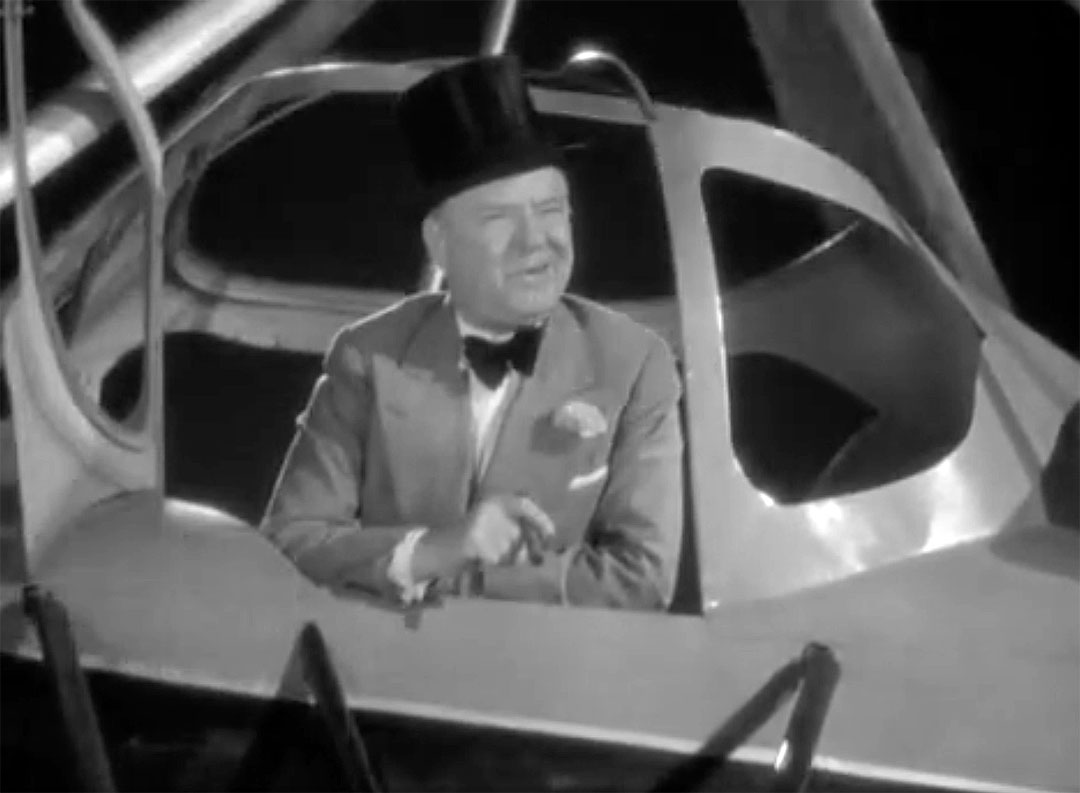
Professor Quail: Hey! Where am I?
Peggy Hopkins Joyce: Wu-Hu.
Professor Quail: Woo-Hoo to you, sweetheart. Hey Charlie, where am I?
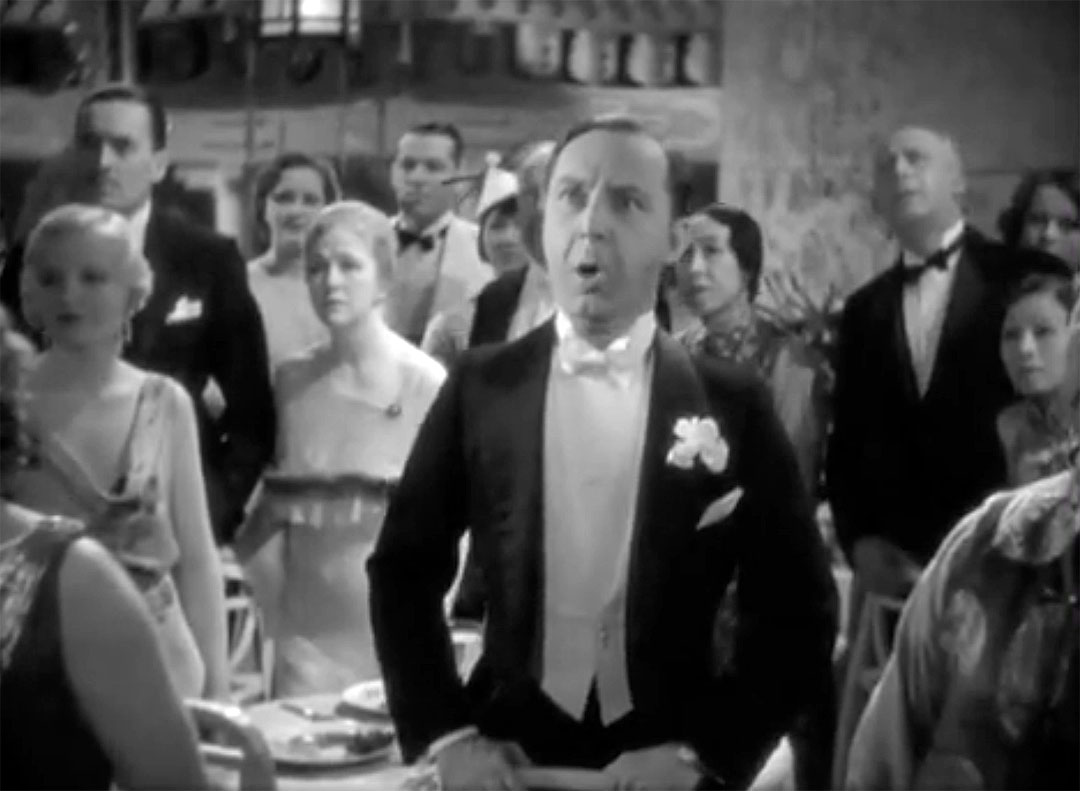
Hotel Manager (Pangborn): WU-HU!
[Professor Quail removes the flower from his lapel]
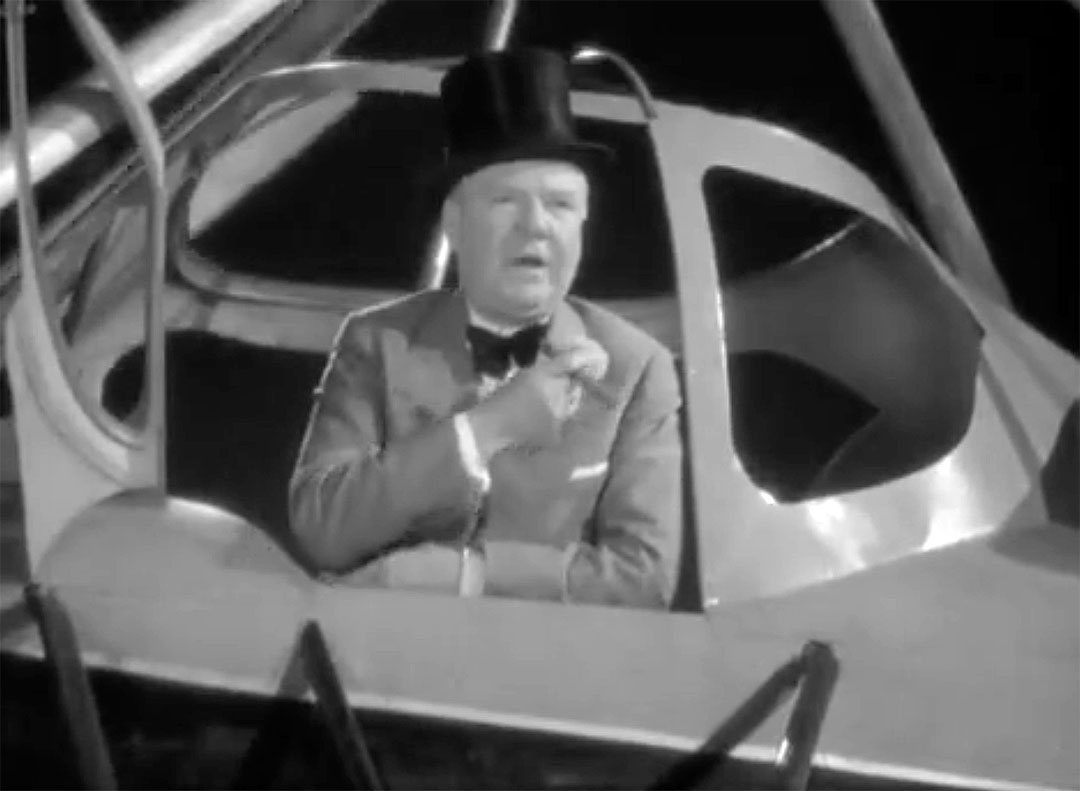
Professor Quail: Don't let the posey fool you!
This thinly veiled reference to a homosexual flirtation would not have been allowed after the production code began to be strictly enforced in 1934. Despite having a sizable role, Pangborn isn’t even listed on the movie’s advertising poster.
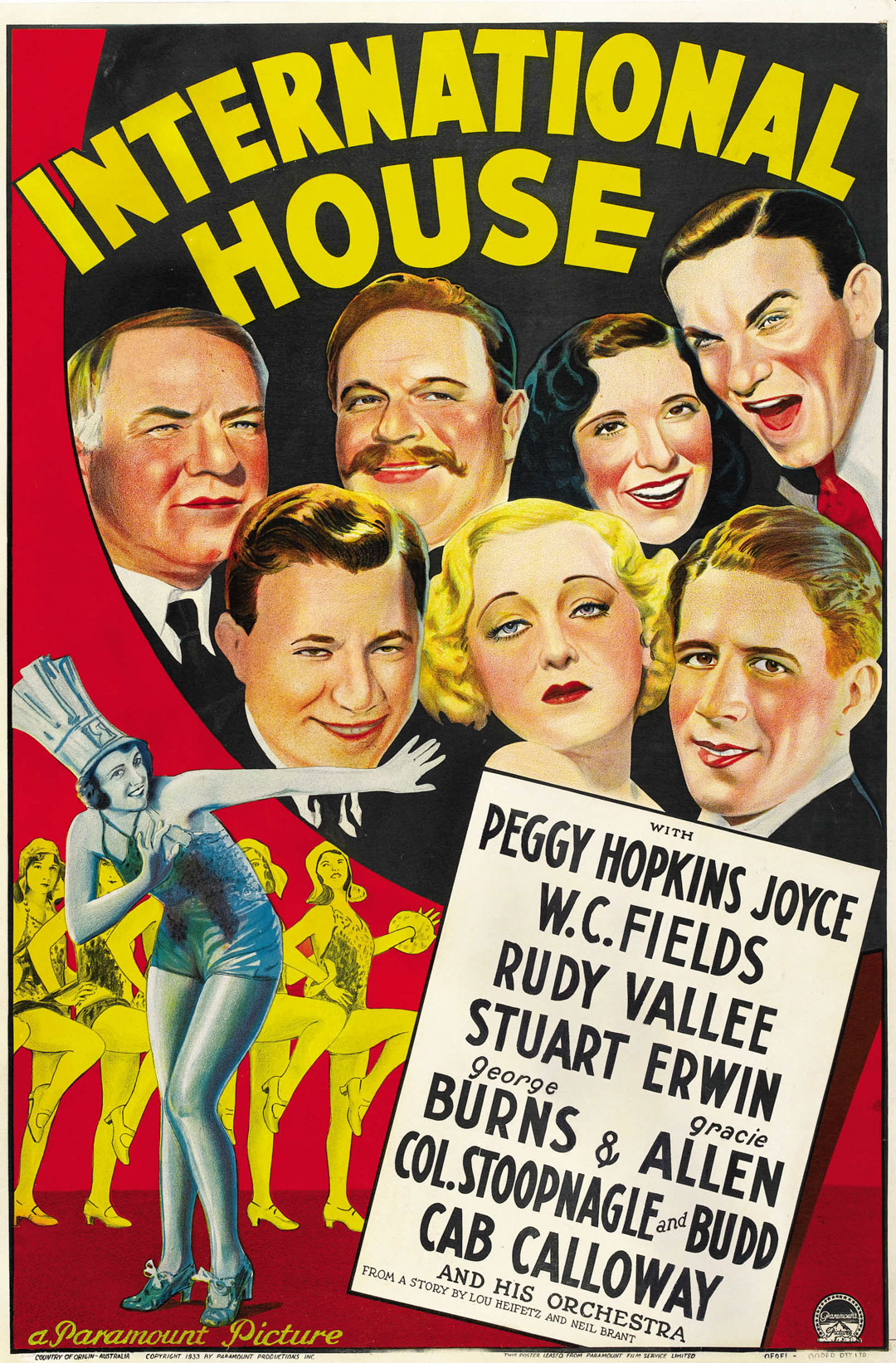
Pangborn had a small role in Shirley’s 1938 hit, “Rebecca of Sunnybrook Farm.” He played the nervous Hamilton Montmarcy, the backup organ player (no pun intended I’m sure) who only got to play if someone got sick.
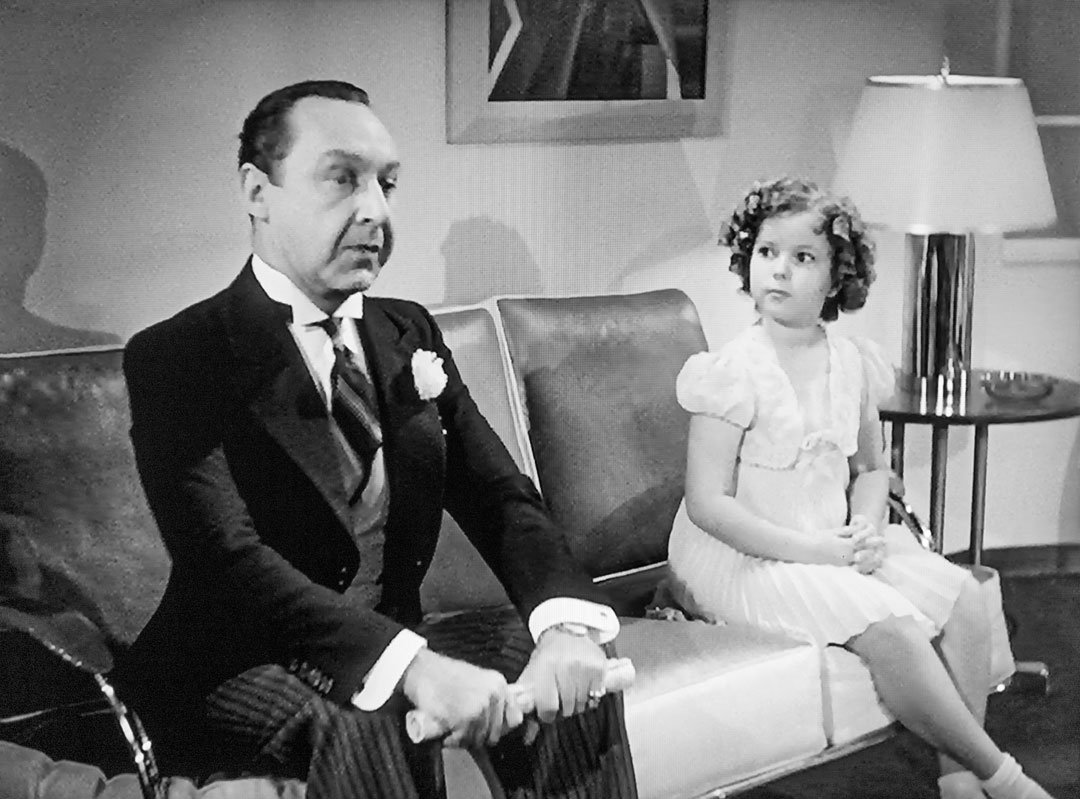
Rebecca (Shirley) feigns illness to get out of her radio contract and Montmarcy is called into action. He promptly faints right before he gets his big chance. Pangborn’s poor mother never got her wish!
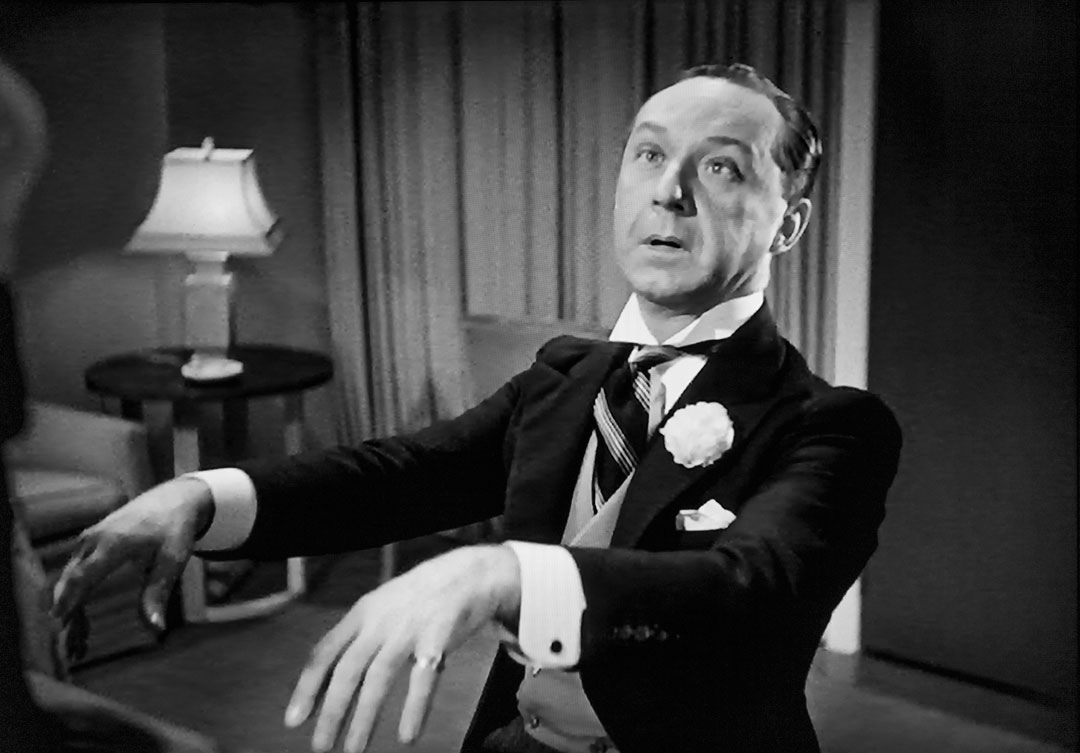
Pangborn got an even larger role in Shirley’s “Just Around the Corner,” also 1938. As yet another building manager, Pangborn (Mr. Waters) was Penny’s (Shirley) nemesis throughout the film. Making sure that she stayed in her (social) place as the engineer’s daughter, he constantly had to remove Penny from situations that caused embarrassment for the rich snobs at his apartment building.
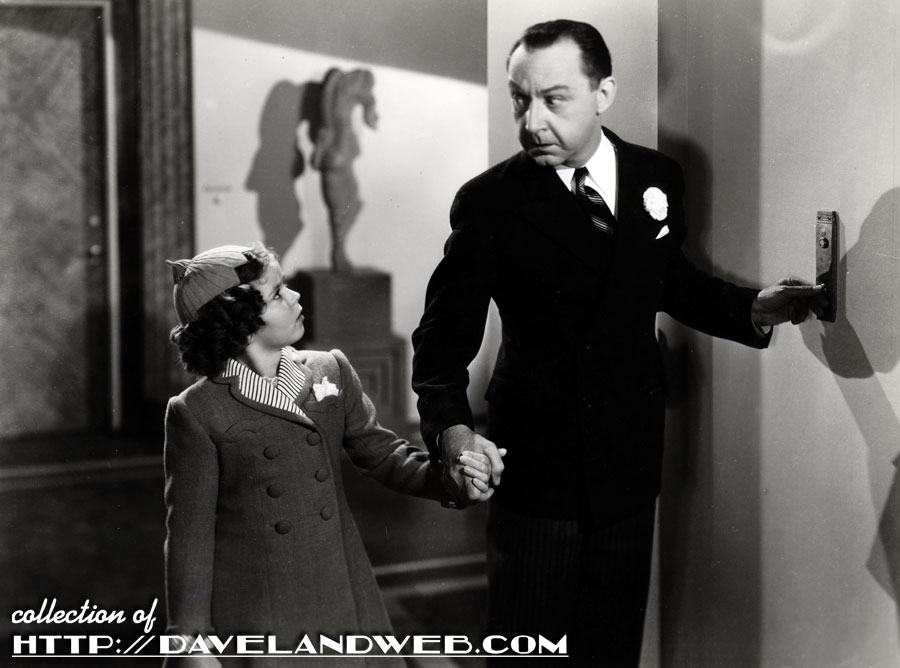
He even kicked Penny out of the playroom, despite her having been invited by Milton (Bennie Bartlett), the boy who lived in the building’s penthouse.
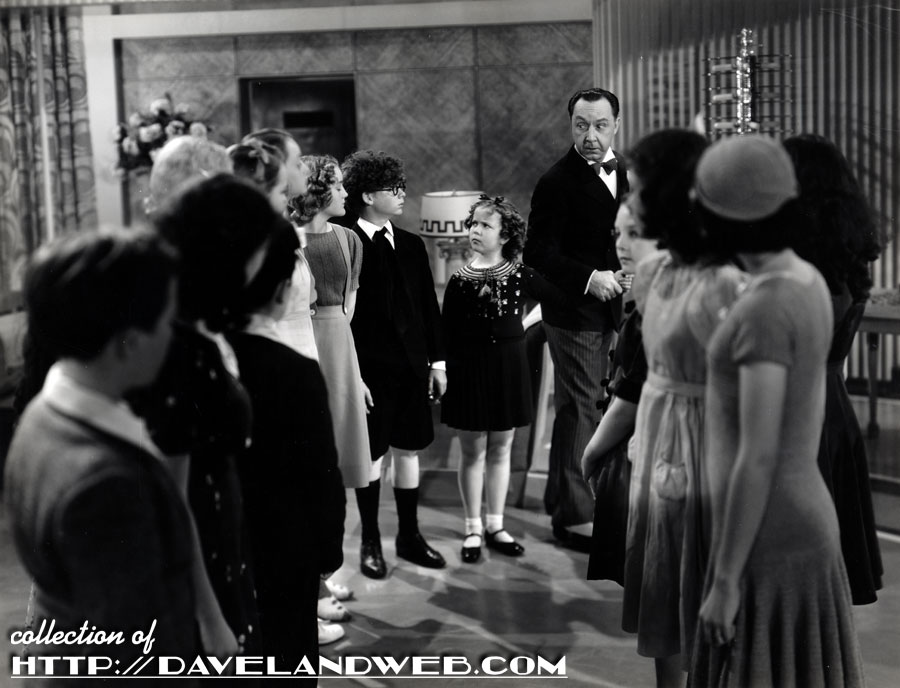
Penny ruined an evening of bridge at the penthouse when she brought Milton home with a black eye. Pangborn was on hand to give plenty of scowls at the curly-haired moppet who had ruined his opportunity to hang out with the elite.
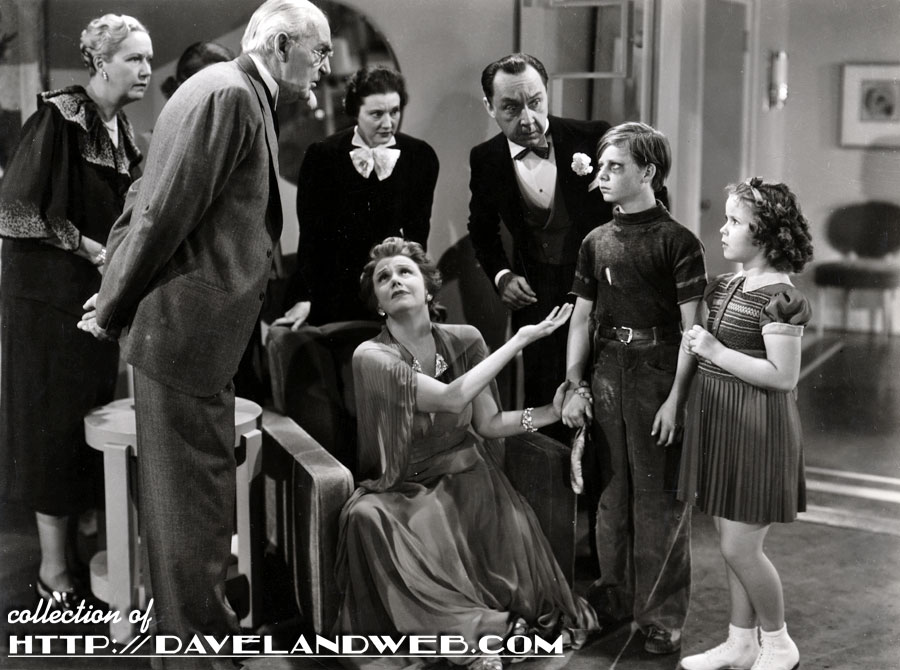
Mr. Waters ended up in the pool when the two kids conspired to pay him back for his meddling. Pangborn was a master of physical comedy, and this scene is a delight to watch, as he slips and slides around the pool. According to the earlier quoted Boston Globe article:
Shirley Temple took a shine to Franklin Pangborn when he played with her in “Just Around the Corner.” She liked the way he took continual ducking in a pool without kicking and complimented him when he snagged his leg on a camera dolly track one day, and went on working without letting any one know. “You’re a good sport,” Shirley told Pangie, “and a sweet guy!”
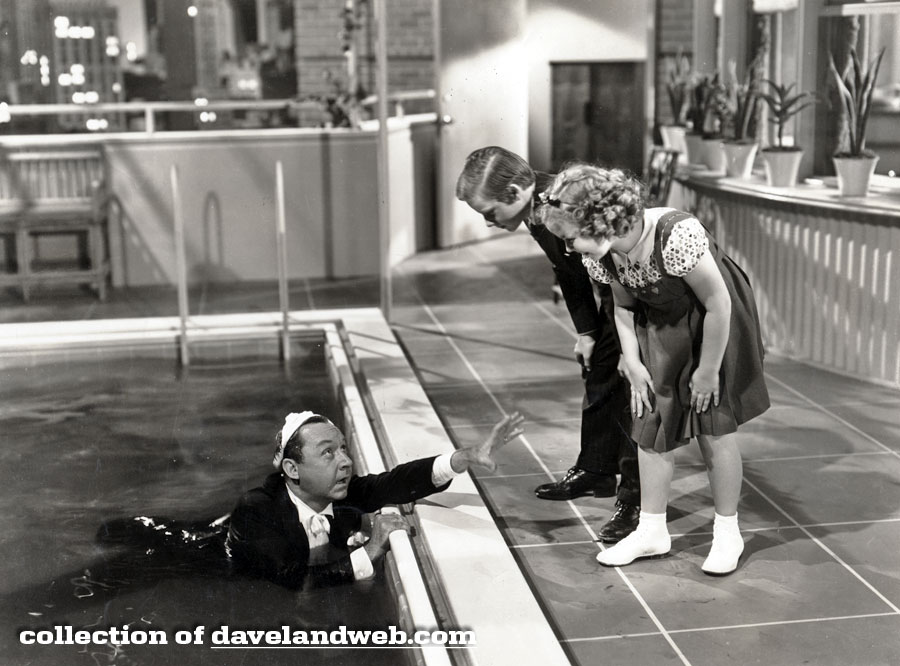
Pangborn went back to Fields after two Temple films, beginning with “The Bank Dick” (1940), playing bank examiner J. Pinkerton Snoopington. Egbert Sousé (Fields) tries to get Snoopington drunk to delay the audit that would reveal his future son-in-law had “borrowed” some funds from the bank. The name of the bar? The Black Pussy Cat Café.
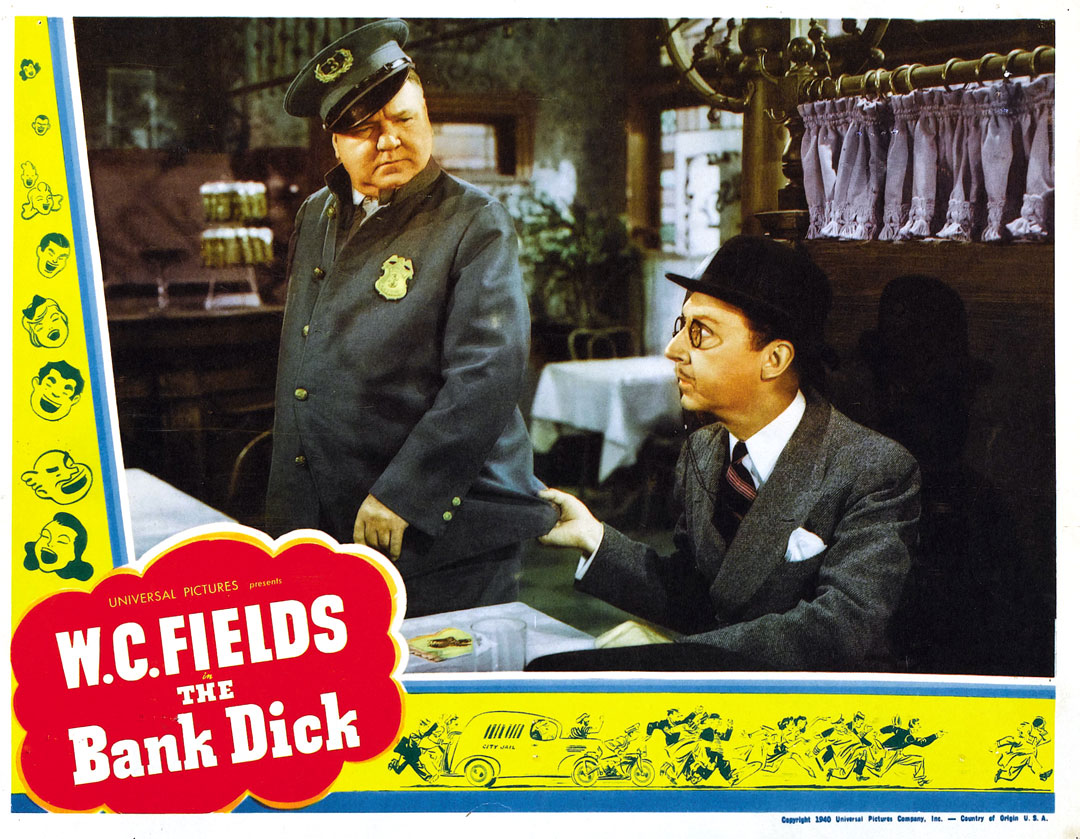
“Never Give a Sucker an Even Break” (1941) followed with Pangborn playing the Producer who can’t stand Fields’ character, but puts up with him because of his talented niece, played by Gloria Jean. Fields’ mistress, Carlotta Monti, played Pangborn’s receptionist. The original script (written by Fields) went through a number of revisions. The Hays office objected to references to Pangborn’s character as a "pansy."
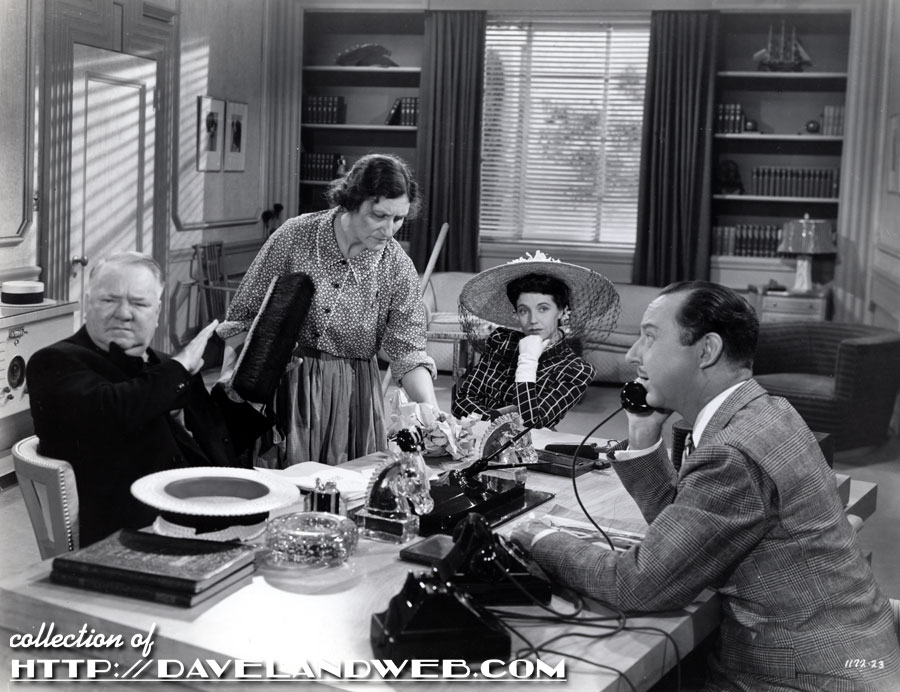
His last film role was in “The Story of Mankind” (1957) as the Marquis de Varennes. It was also the final film that all three Marx brothers appeared (although not in the same scenes). Pangborn’s final performance was on The Red Skelton Show in the April 22, 1958 episode. He lived in Laguna Beach with his mother. He died in Santa Monica on July 20, 1958, one day after undergoing surgery.
See more Shirley Temple photos at my main website.

2 comments:
Disney Legend Floyd Norman's website reported that Pangborn appeared -- sort of -- in the animated feature "Sleeping Beauty".
They would shoot live action reference footage for the animators, not for rotoscoping but to catch things like how a costume might move, plus physical attitudes and bits of business the actor might devise. The animators would pick and choose what to incorporate into their work.
There's a song where the two kings get drunk, along with a minstrel who plays a lute but doesn't actually speak. Pangborn was filmed pantomiming the increasingly soused minstrel; in the finished film they draw on his facial expressions so it looks like a comic caricature of him.
Great info - thanks for sharing!
Post a Comment